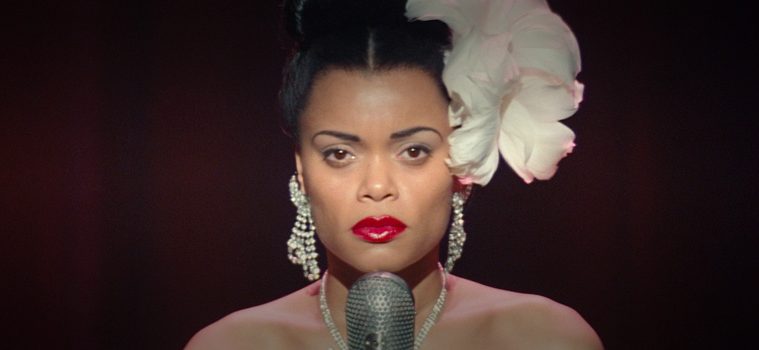STRANGE FRUIT –
Feb. 25, 2021 – To millions in America and around the world, Billie Holiday – or Lady Day, as she was known – was merely a musical legend, a woman as effortlessly graceful as she was inspirational. To the US government, however, she was yet another casualty in the often racist war on drugs that first found its footing in 1930, when the Federal Bureau of Narcotics was established. This public-versus-private tension is explored in Lee Daniels’s new Hulu biopic The United States vs. Billie Holiday, and the story that Daniels tells is one that holds relevance not just for fans of Holiday but for every person who has been targeted by America’s long-standing criminalisation of drug consumption and addiction (and, arguably even more so, for the many non-drug-using Americans in whose name aggressive anti-drug policy is putatively carried out). In the film, Andra Day shines in her portrayal of both the glamour of Holiday’s public persona and the depths of her drug dependency and legal troubles. While it makes a valiant effort to capture the import of Holiday’s legacy, it’s just as skilful at underlining the ways in which Holiday’s myriad problems were quintessentially American in their making. It’s worth noting that while Holiday was being relentlessly pursued and detained by the US government for her narcotic dependency, white stars like Judy Garland were being drugged by the studio system to stay slim and energetic on set – a contrast that gets to the heart of the stymying nature of America’s drug policy, still in evidence today. (Just take a look at the sentencing disparity for crack versus powder cocaine, which falls largely along racial lines.)



